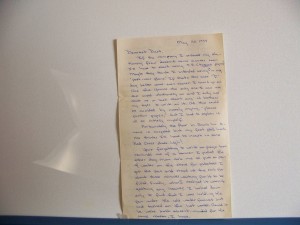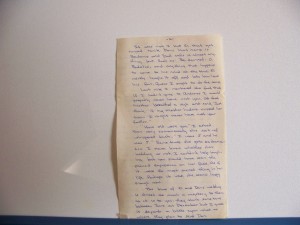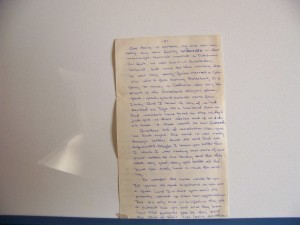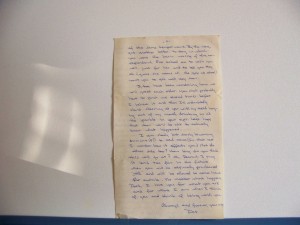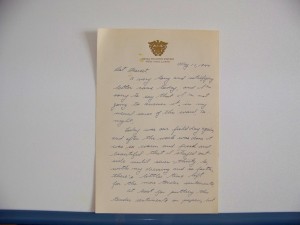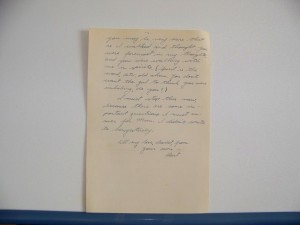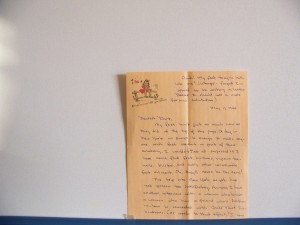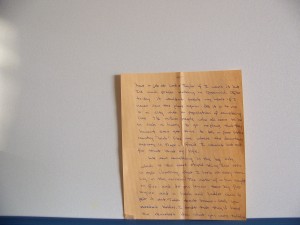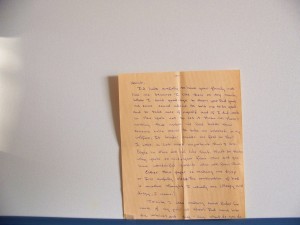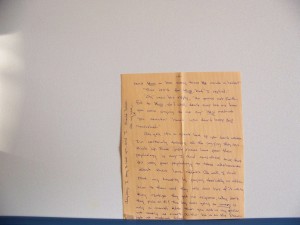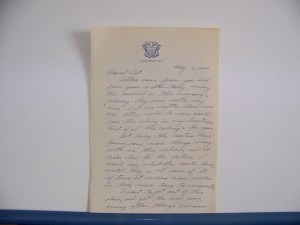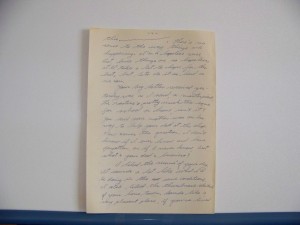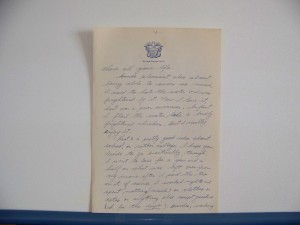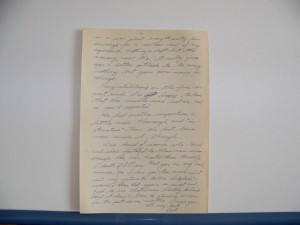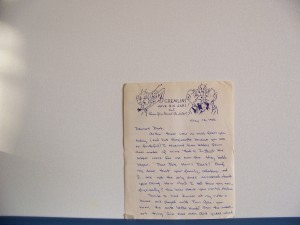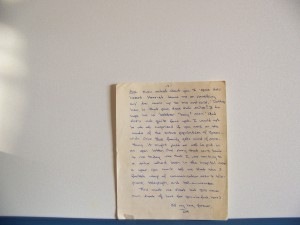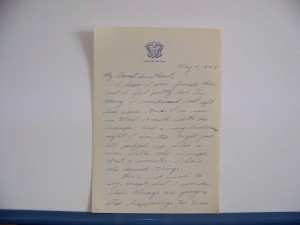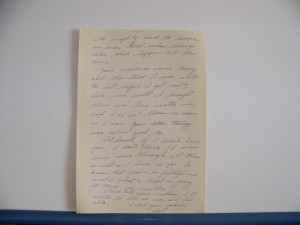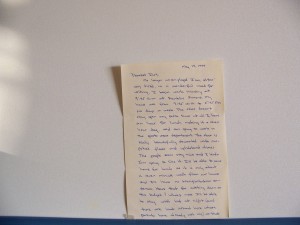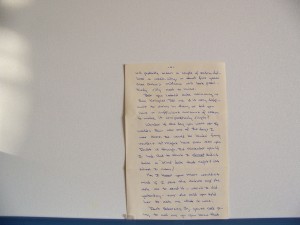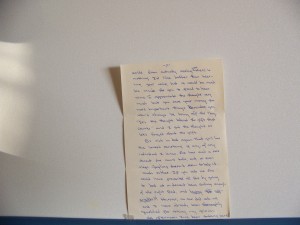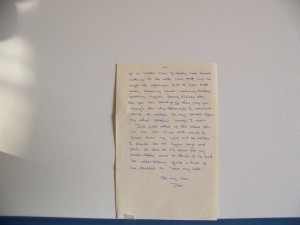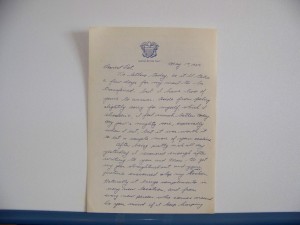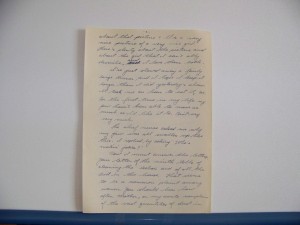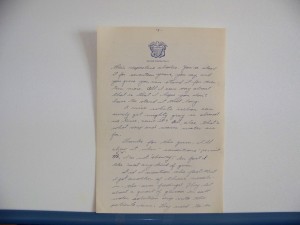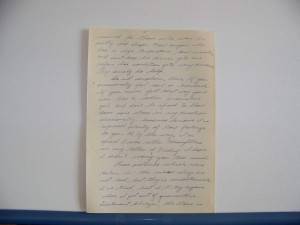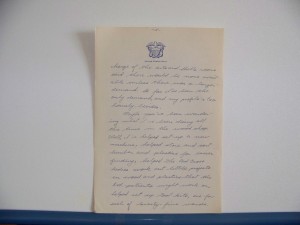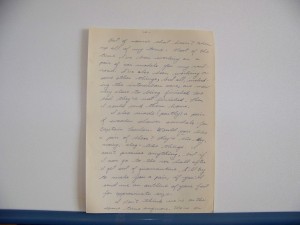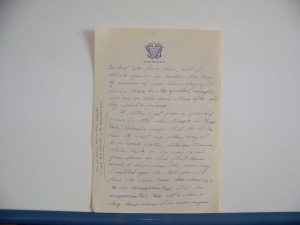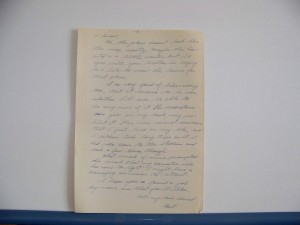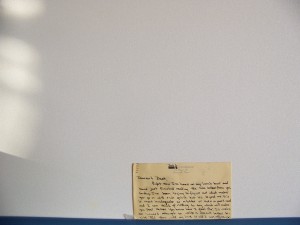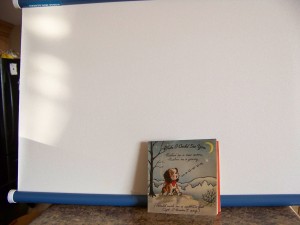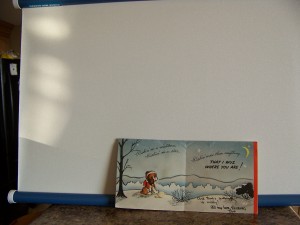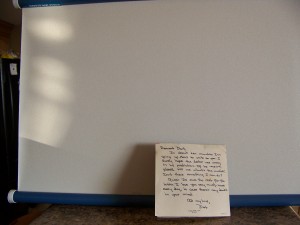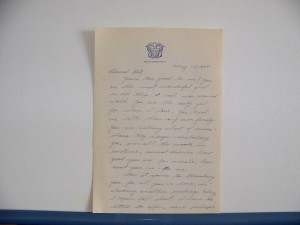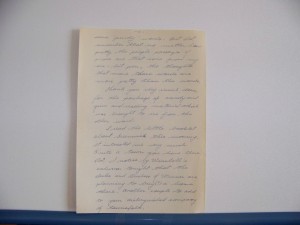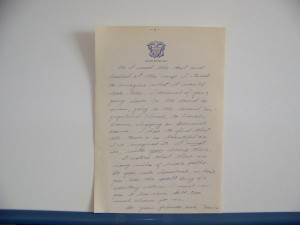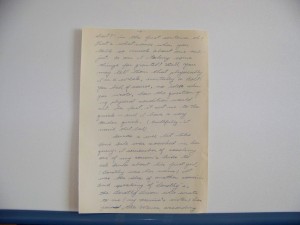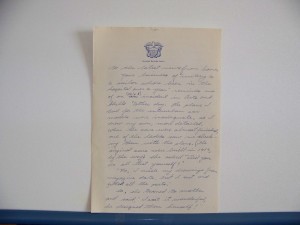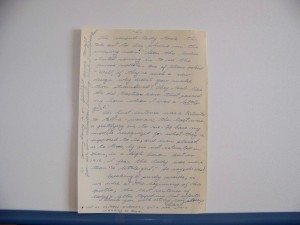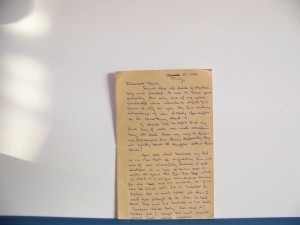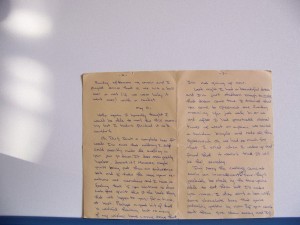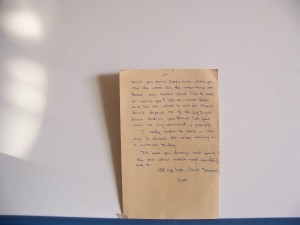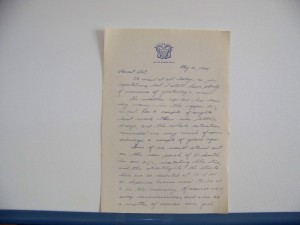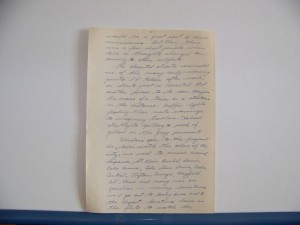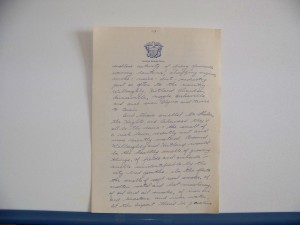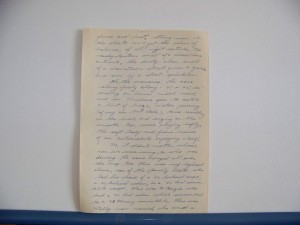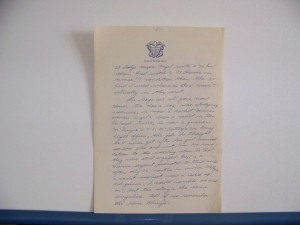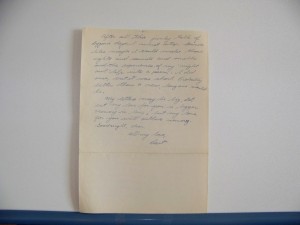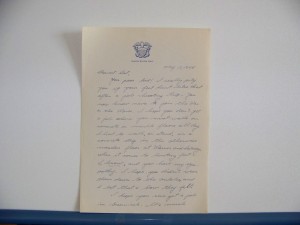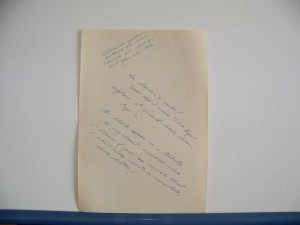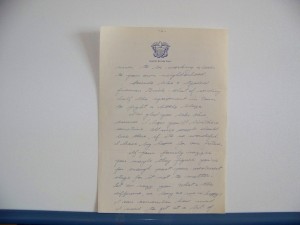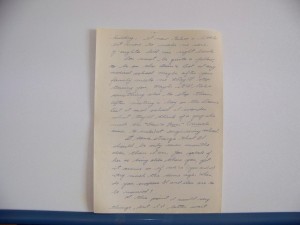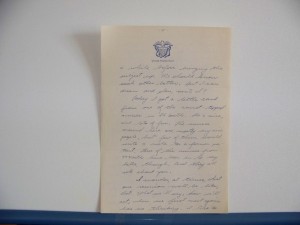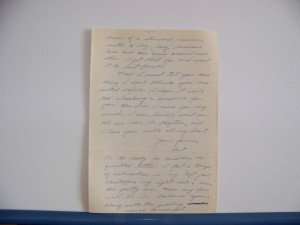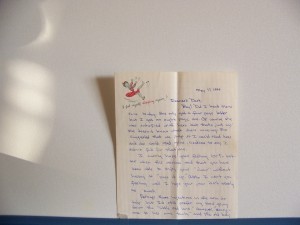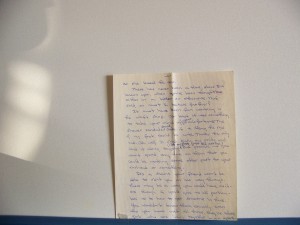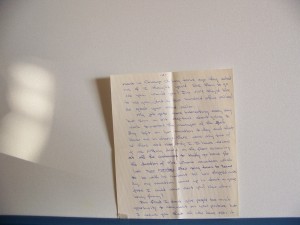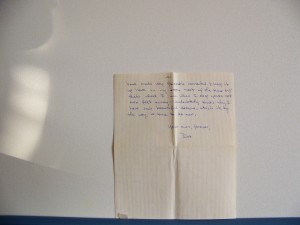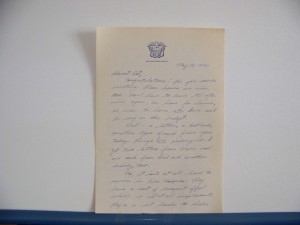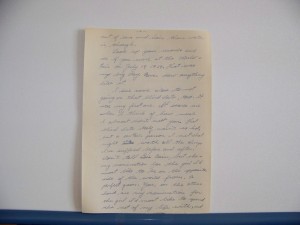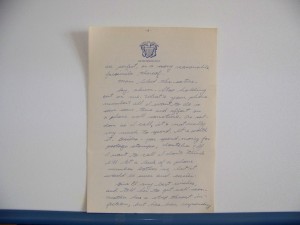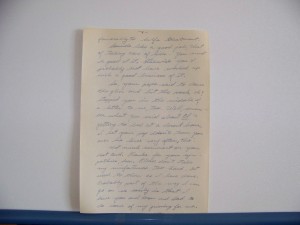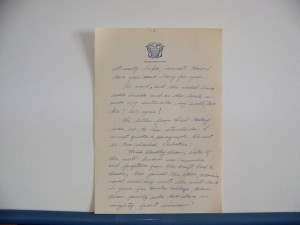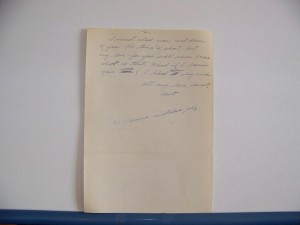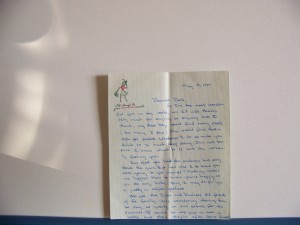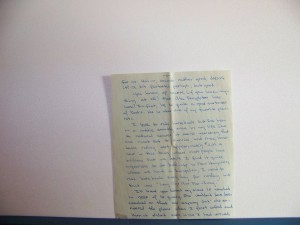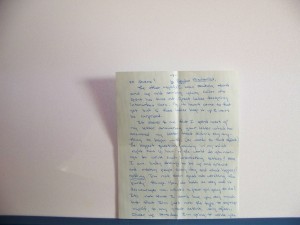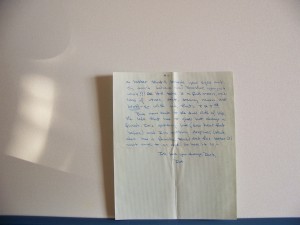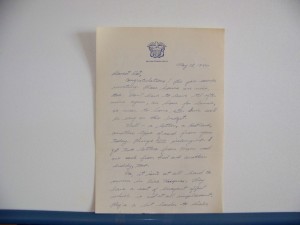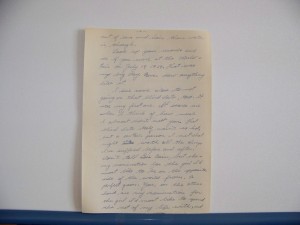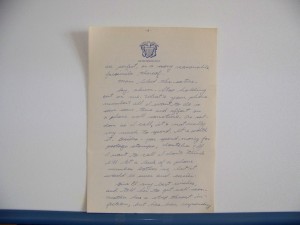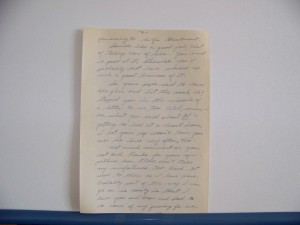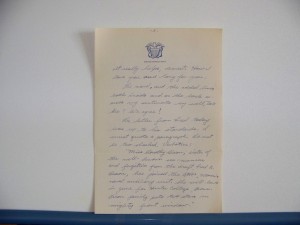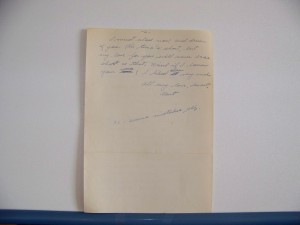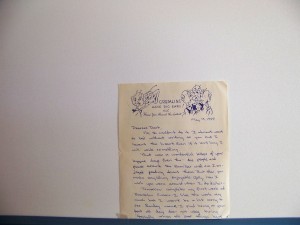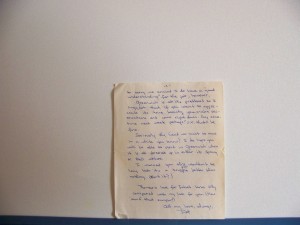Dart’s letter has flair, even though most of it is simply in response to Dot’s latest. He thanks her for the outline of her feet and promises to try to finish a pair of slippers for her. He’d send her an outline of his foot for comparison, but his will not fit on a page of paper.
He supports her choice not to share his letters with her mother. Although they’ve not written anything to be ashamed of, it’s a “matter of general principles.” Oh, how I remember that favorite phrase of his. As children, whenever my siblings or I would ask a question he either didn’t know how to answer or was unwilling to answer, he would respond, “Well, that’s a matter of general principles.” For example: Daddy, why does Nancy get to stay up later than me?” Or, “Why are you mad at your boss?” Another favorite response in similar circumstances went like this: Daddy, why is the sky blue? To which he would answer, “To make little girls ask questions.” As part of my introduction to a vocabulary beyond my years, I learned at an early age what “general principles” meant.
He reports that he’s feeling better than he did when the mumps started. He’s still being nourished and hydrated with 1000 c.c of fluid in his arm, which he explains does nothing to stave hunger pangs or thirst.
In response to Dot’s concern that he would neglect his model-building in order to make her slippers, he assured her that there was nothing that can deter his interest in trains, so she needn’t fear. Let’s say his interest in railroads never waned throughout his life, and leave it at that for now.
He wrote a bit about his buddy John Angel – a close friend from Shaw high school. “Angel” had just presented his sweetheart Sally with an engagement ring before being shipped out from Fresno to parts unknown. “Another of my buddies to impress on us all the fact that we are ‘growing up,’ believe it or not.”
He tells Dot he would be happy to see her friends if they decide to come for a visit. He gave her detailed directions about which train to take from Chicago, what the visiting hours were, and how to find his ward. Naturally, he’d like her to save those directions for her own use whenever the opportunity arises. Wishful thinking, undoubtedly.
He ends the letter by telling her a vivid dream he had of Dot. For the present, dreams are the best chance they have of “visiting.”
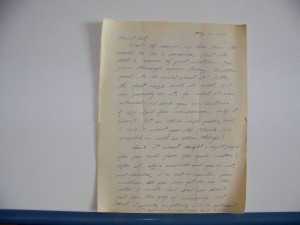
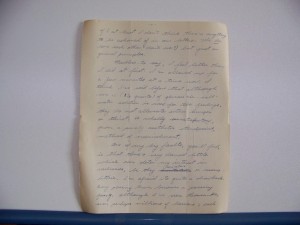
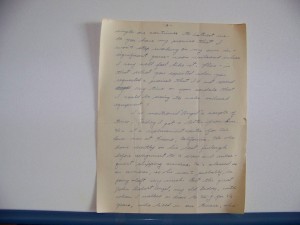
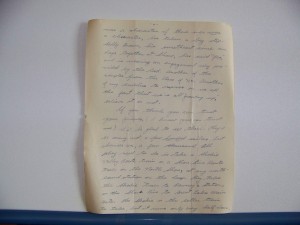
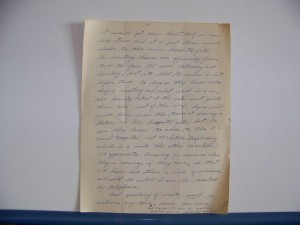
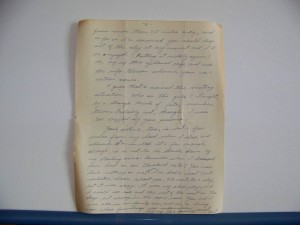
In Dot’s letter, she comments on Dart’s having forgotten to write on the back of one page of stationery. She told of a similar mental lapse she had the other day when she was filling a pot with water at the kitchen sink. She got to daydreaming and realized the pot in her hand wasn’t getting any heavier. She looked down and saw she was holding it under the cold water tap, but had actually turned on the hot water. “Could it be we’re both absent-minded for the same reason, I hope?”
She told about her father teasing El last night about Don’s last name. It is Badamo, but Arthur Chamberlain has great fun calling him anything but that. El just smiles and lets him have his fun – a good lesson for Dot when she’s the target of her dad’s humor. She says El and Don’s wedding date is a mystery, even to the couple themselves. It all depends on where the war sends him, and when.
Last night, Dot mentioned to her mother that if she had not gone to Andrews School, she would probably never have met Dart. “At that, Mother breathed a sigh and said, ‘If my mother had not missed her train, I might never have met your father.'” Dot asked how old Ruth had been when she met Arthur, and Ruth whispered romantically, “I was 5 and he was 8.” Dot wasn’t sure if her mother was joking, but she laughed out loud. “You should have seen the pained expression on her face. As if it were the most sacred thing in her life. Perhaps it was – she seems happy enough now.” Suggesting that Ruth Chamberlain was happy in her marriage seems like a major understatement. By all reports, she and Arthur were deeply in love their whole lives. I’ve always believed the greatest family legacy that I’ve received is a long line of strong, happy marriages on both sides.
Dot wrote a paragraph about how “versatile” her family is becoming. Harriet married a Dutchman, Gordon married an Irish Catholic and Eleanor is engaged to an Italian Catholic who is very tolerant of El’s Protestant religion. It seems a little quaint that Dutchmen and Catholics were considered the height of diversity in those days.
In another mother-daughter conversation, Ruth told Dot that she and Arthur had really gotten to know each other primarily through letters. That prompted Dot to go back and re-read some of the letters Dart had sent her, and she concedes that they probably know each other better than she thought. She was also reminded what a good writer he is.
She’s not surprised Dart got a note from a former nurse of his. To Dot’s thinking, perfect patients like him are probably a rare occurrence in the lives of nurses. Once they find one, they spend the rest of their careers hoping to come across another.
Dot becomes uncharacteristically serious in her final paragraph. She’s dismayed that he has developed mumps on the other side. All she wants is for him to get better so he can come home for awhile. “No matter what happens, Dart, I love you for what you are and for what I am when I think of you and think of being with you.”
